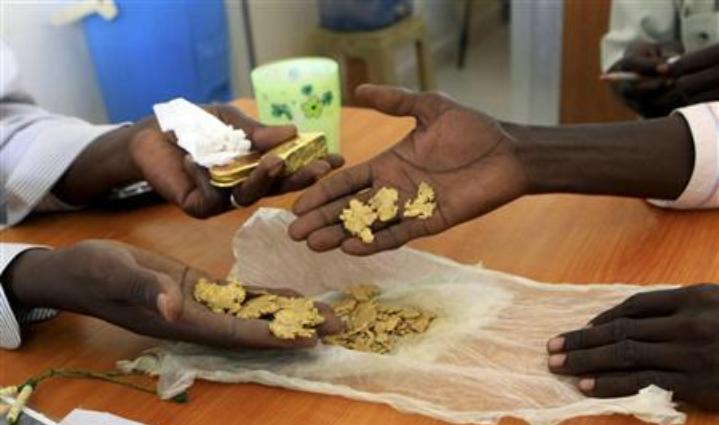Sudan plans to end central bank intervention in gold market

December 15, 2019 (KHARTOUM) – Ibrahim Elbadawi, the Sudanese Finance Minister, last week announced a plan for the Central Bank of Sudan to exit from the gold trade and purchases of petroleum derivatives by the end of this year.
His statements have raised a series of questions about the feasibility and effectiveness of the move.
During the former regime, the Central Bank of Sudan used to buy gold from artisanal miners by printing large quantities of cash. This practice is believed to have contributed to an increase in inflation rates.
The Minister of Finance expected that the discontinuation of the Central Bank of Sudan from purchasing gold and petroleum products would contribute to reducing the exchange rates of the Sudanese pound against the dollar.
Also, economists expect that the bank’s exit, along with the establishment of a gold exchange market in Khartoum will lead to a decline in gold smuggling operations.
Economist Ezz El-Din Ibrahim told Sudan Tribune that currently, the law states that the Central Bank of Sudan is the only party responsible for buying gold in Sudan.
“There is no clarity about the (minister’s) plan to have the Central Bank of Sudan to stop gold purchases, and it isn’t known whether commercial banks will enter into gold purchases,” he added.
The Sovereign Council recently appointed Badr al-Din Abdel Rahim Ibrahim as a governor of the Central Bank after the resignation of the former governor.
Ibrahim maintained that it is important that the regulatory authority purchases gold and not to abandon it to the private sector.
There are no official statistics on gold revenues and its contribution to covering the importation of Sudan’s basic commodities.
According to reports of the Central Bank of Sudan, seen by (Sudan Tribune), Sudan’s imports in 2017 amounted to about $ 9.1 billion, while during the year 2018 it reached about $ 7.8 billion.
Banking expert Mohamed Abdel Rahman Abu Shora said that Elbadawi’s plan requires ensuring that the income of exports be disposited at the state treasury, in the sense that the past period witnessed large smuggling of export earnings, causing the loss of the considerable amount of hard currency that could have contributed to cover the imported basic commodities.
He further said that under normal circumstances the Central Bank of Sudan has to move away from the gold trade for the benefit of the private sector.
However, he ruled out that a drop in the dollar prices in the black market happens if the ministerial plan is applied, given that the exchange rate is mainly affected by the position of the trade balance and the rate of inflation in the country.
The inflation rate has increased from 57.70% last October to 60.67% in November.
For his part, banking analyst Taha Hussein approved in statements to Sudan Tribune the government plan to end the central bank intervention in the gold market.
He points out that the central bank’s task is not to buy gold.
“The role of the central bank should be supervisory so that the commercial banks perform this role after developing the required monetary regulations.
He indicates that the bank’s policy error in buying gold led to an outbreak of cash leakage because the bank buys at a price higher than the international market price.
He said that this policy contributed to increasing inflation rates by printing in large quantities to offset the purchase of gold from traditional minerals.
The production of the informal miners, who are individuals or small companies, represents 85% of the total gold production in Sudan.
The difference between gold produced in Sudan and gold exported abroad is estimated at between $ 3-4 billion annually. Sudan’s gold production in 2017 was estimated at 105 tons.
There are no official data about the volume of quantities smuggled abroad.
The gold exports represented 37% of Sudan’s total exports in the past three years, according to a report by the Ministry of Minerals.
In a report published last April, Reuters said that billions of dollars’ worth of gold are being smuggled out of Africa every year through the United Arab Emirates.
“Customs data shows that the UAE imported $15.1 billion worth of gold from Africa in 2016, more than any other country and up from $1.3 billion in 2006. The total weight was 446 tonnes, in varying degrees of purity – up from 67 tonnes in 2006,” said Reuters.
(ST)

